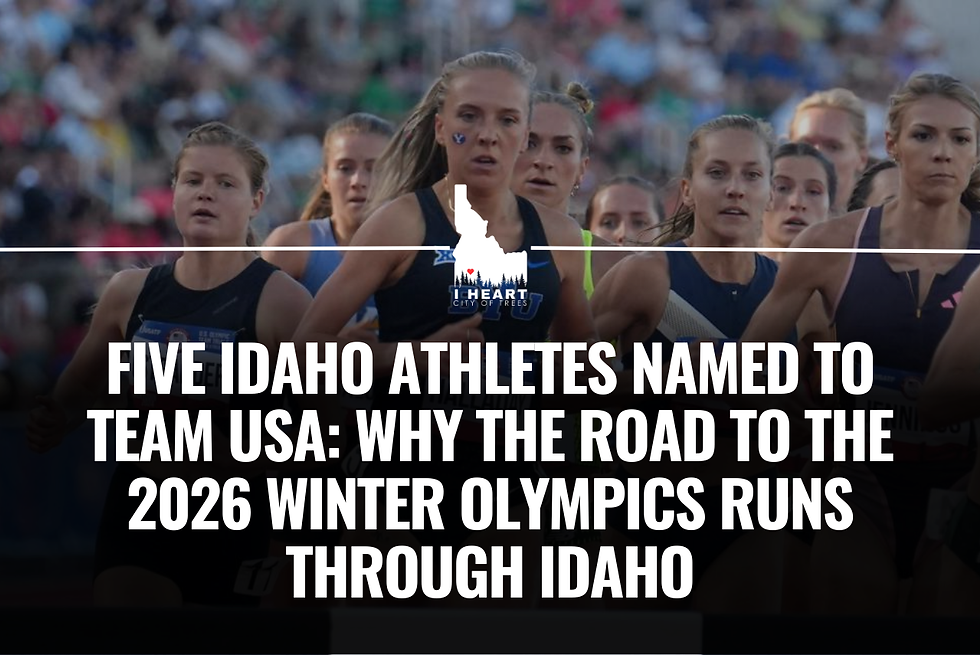Free Rides, Big Impact: How Metro Community Services Is Keeping Canyon County Connected
- Brent Hanson
- Oct 22, 2025
- 6 min read
For many of us in the Treasure Valley, hopping in the car to head to the store, make a doctor’s appointment, or meet up with friends is just part of everyday life. We don’t think twice about it. But for thousands of Canyon County residents, especially seniors, people with disabilities, and low-income families getting from point A to point B is the single biggest challenge they face each week.
That’s where Metro Community Services, a nonprofit based in Canyon County, has stepped in with a simple but life-changing solution: free, door-to-door rides. In 2024 alone, they provided 11,000 trips to local neighbors who otherwise would have been stuck at home.
Think about that for a second 11,000 rides is 11,000 times someone made it to a doctor’s appointment, reconnected with their community, or simply got out of the house. For people with limited mobility, that’s more than a ride. It’s independence.
But here’s the thing: demand for these rides is rising fast, and Metro only has six vans and six drivers. They’re stretched thin. And unless more support comes in, this lifeline for Canyon County residents may not keep pace with the need.
Why This Service Matters
Mobility = Independence
If you’ve ever had to depend on someone else for a ride, you know how limiting it feels. For older adults in Canyon County many of whom no longer drive this isn’t a once-in-a-while inconvenience. It’s daily reality.
Without reliable transportation, people miss medical appointments, can’t access senior centers, skip social gatherings, and often become isolated. Over time, that isolation can take a toll on both physical and mental health.
That’s why Metro’s program is so valuable: it restores independence. Riders can schedule a pickup, get help walking to the van if needed, and be escorted right into their doctor’s office or destination. It’s personal, dignified, and compassionate.
Health and Wellness
It’s no secret that access to healthcare depends heavily on access to transportation. For many low-income or older residents, missing even one appointment can mean serious setbacks in their health.
By getting people to dialysis, physical therapy, regular checkups, and specialist visits, Metro’s rides are helping residents stay healthier and in many cases, out of the hospital. That not only benefits individuals but also eases strain on the healthcare system.
Community Connection
The rides aren’t just about medical appointments. They also help people get to senior centers, grocery stores, and community events. For some riders, this is their only way out of the house. It’s how they stay connected, meet with friends, and continue to feel part of the wider Canyon County community.
How It Works
Metro Community Services keeps things simple:
Door-to-Door Service Riders are picked up at home and dropped off exactly where they need to go. For those with mobility challenges, this makes all the difference.
Six Dedicated Drivers The team isn’t just providing a lift, they're providing care. Drivers often escort riders inside, wait for them, and make sure they get back safely. Many riders describe them as companions as much as chauffeurs.
Service Area Rides cover Caldwell, Nampa, and Middleton, ensuring that major population centers in Canyon County are connected.
Free of Charge The service is entirely free, thanks to grants, donations, and community fundraising. For low-income residents, that cost savings is significant.
It’s a model built on compassion and practicality, filling a gap that public transit simply doesn’t reach in many parts of Canyon County.
The Challenge: Rising Demand, Limited Resources
Here’s the catch: as Canyon County grows, so does the need for this service. Seniors make up a rising percentage of the population, and more families are struggling with transportation costs. That means more calls for rides, more scheduling pressure, and more miles on Metro’s six vans.
The numbers tell the story:
11,000 rides in 2024 is a huge milestone but demand is already outpacing capacity.
With only six vans, there’s no way the current fleet can keep up if growth continues at this pace.
Without new funding, Metro risks having to turn people away.
For an organization that sees mobility as a human right, that’s the worst-case scenario.
A Quirky Fundraiser With a Serious Purpose
To help meet the need, Metro is putting on a creative and uniquely Canyon County fundraiser this fall: the “Race for the Rest of Us.”
Here’s what makes it different:
It’s a 0.5K run/walk. Yes, you read that right. Just half a kilometer.
There’s a donut station halfway through, so you can refuel before you “push through” to the finish line.
The event is as much about laughter and community as it is about raising money.
This year’s race is set for October 11. All proceeds go directly to supporting Metro’s transportation program, helping cover fuel, vehicle maintenance, and driver costs so the service can stay free and hopefully expand.
It’s proof that fundraising doesn’t always have to be black-tie galas or silent auctions. Sometimes, a quirky, tongue-in-cheek event is exactly what gets people excited to give.
Why This Matters Beyond Canyon County
You might be thinking: “I live in Boise, Meridian, or Eagle why does this matter to me?”
Here’s why you should care:
Regional Ripple Effect: As Canyon County grows, so does its influence on the rest of the Treasure Valley. A strong, connected community there means healthier, more resilient neighbors across the valley.
Model for Other Communities: Metro’s success could inspire similar programs in Ada County or rural areas that face the same transportation challenges.
Shared Infrastructure: Health care, senior services, and social programs often overlap county lines. When Canyon County residents can get to appointments, it benefits regional systems as a whole.
At the end of the day, this isn’t just about one county. It’s about creating communities where no one is left behind because of something as basic as a lack of transportation.
The Human Side: What Riders Say
It’s easy to get lost in the numbers, but the stories bring this home. Riders consistently describe Metro’s service as “a wonderful gift” and often say it’s the only way they can leave the house.
One rider put it this way: “Without these rides, I’d have to cancel my medical appointments. I don’t know what I’d do without them.”
Another shared: “They don’t just drop me off at the curb. They walk me in, make sure I’m safe, and that makes all the difference.”
Those aren’t just testimonials they’re reminders that behind every ride is a real person whose life is better because of it.
What You Can Do to Help
If this story strikes a chord, here are a few ways you can make an impact:
Join the Race for the Rest of Us Sign up for the October 11 event and bring friends. You’ll laugh, eat donuts, and know your entry fee is helping keep this program alive.
Donate Directly Metro Community Services accepts donations year-round. Even small contributions go a long way when you consider the cost of fuel and maintenance.
Spread the Word Share this story with neighbors, coworkers, or on social media. Awareness is half the battle when it comes to local nonprofits.
Volunteer Your Time Whether as a driver, event helper, or office supporter, volunteers keep organizations like Metro moving forward.
Advocate for Local Support Talk to your city and county representatives about why these services matter. Public support could open doors to more funding in the future.
Final Thoughts
In a valley that’s growing as quickly as ours, it’s easy to focus on the big projects: airport expansions, new housing developments, or freeway construction. But sometimes, it’s the quieter stories, the ones about neighbors helping neighbors that make the biggest difference.
Metro Community Services’ transportation program is one of those stories. With just six vans and six drivers, they managed to provide 11,000 free rides in 2024. Each ride represents independence, dignity, and connection for someone in our community.
Now, they need us. Whether that means showing up to the “Race for the Rest of Us,” donating a little to keep the vans running, or simply spreading the word, we all have a role to play in making sure this service not only survives but thrives.
Follow @iHeartCityOfTrees for more updates on local programs, community stories, and the ways Treasure Valley neighbors are making a difference every day.




Comments